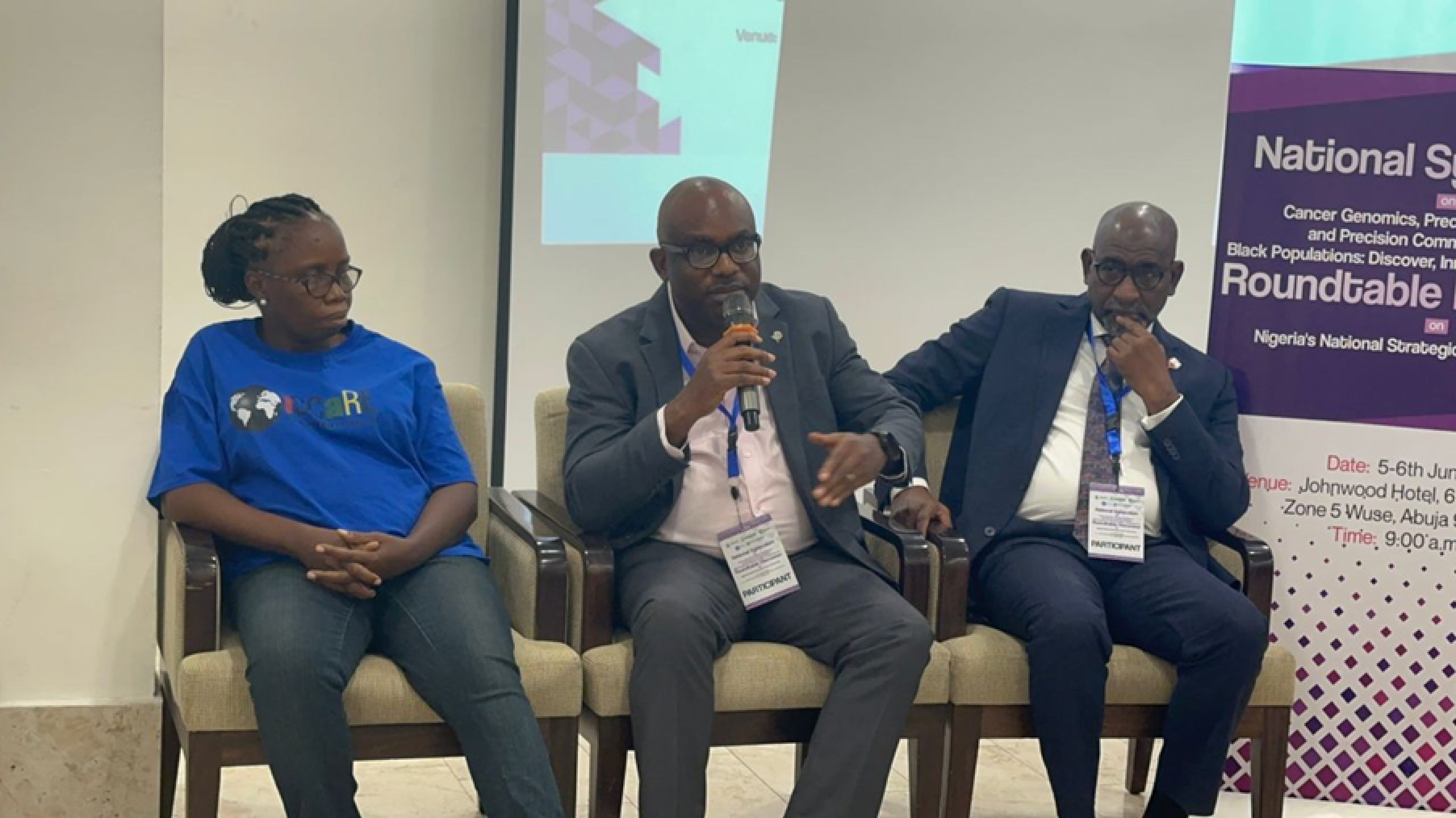The symposium on Cancer Genomics, Precision Oncology Care, and Community Health for black populations took place on June 6-7, 2024, at the Johnwood Hotel under the auspices of the National Institute for Cancer Research and Treatment (NICRAT) in Abuja, Nigeria. The main objective of the workshop was to enhance cancer research, improve oncologist training, build capacity in clinical trials, cancer genomics, and precision oncology. The event aimed to foster collaboration among top-tier cancer research institutions to revolutionize cancer care in Nigeria and beyond.
A roundtable on Implementing Nigeria’s National Strategic Cancer Control Plan 2023-2027 and the National Cancer Research Agenda 2024-2028 was held. The purpose was to begin a dialogue on exploring best opportunities to foster collaboration between the public, private, and non-profit sectors in ensuring successful implementation of the 2023-2027 Plan & 2024-2028 Agenda to reduce the burden of cancer and improve health outcomes for patients with cancer in Nigeria.
In his remarks, Dr. Tunji Alausa, Minister of State for Health, emphasized the urgency to adopt innovative cancer treatment regimens. Dr. Alausa also drew the attention of the participants to the latest advancements in cancer genomics, focusing on the genetic changes in cancer cells and their implications for prevention, early detection, treatment, prognosis, and recurrence. Dr. Cheryl Willman, a world-renowned expert from Mayo Clinic, underscored the need to shift focus from late-stage cancer treatment to prevention and early detection. Other highlights were on the selection of treatments based on the DNA signature of individual tumours.

Importantly, the interactive sessions and panel discussions featured the Centre Leader, Prof. Emeke Iweala and the Applied Research Coordinator, CApIC-ACE, Prof. Solomon Rotimi. They spoke on the unique genetic and molecular landscape of cancers among African populations and espoused the contributions of CApIC-ACE to capacity building in the areas of cancer genomics in Nigeria. There were also discussions by other speakers on opportunities for investment, partnerships, and implementation support, and the need to draw a blueprint for future action so that Nigeria can achieve its goal of transforming the landscape of cancer research and treatment in Nigeria. The significant takeaways from the symposium include reinforced commitment to embrace precision oncology care tailored towards genetic and molecular characteristics of cancers in Black African populations; enhanced understanding of the role of cancer genomics in improving cancer treatment outcomes; strategic partnerships formed between Nigerian cancer research institutions and globally renowned cancer centres such as the Mayo Clinic and the Milken Institute; and a plan to establish a National Cancer Registry in Nigeria to better understand cancer incidence and mortality trends.
The symposium had a profound impact on the participants and the Nigerian government's cancer control policy. Participants gained valuable insights into the latest advancements in cancer genomics and precision oncology, which they can apply to improve cancer care in their respective institutions. The event fostered a collaborative spirit among researchers, clinicians, and policymakers, encouraging a unified approach to tackling cancer disparities in Nigeria. The wider community benefited from the symposium's focus on early cancer detection and prevention, promising a future where cancer care is more personalized, effective, and accessible. Additionally, Prof. Emeke Iweala and Prof. Solomon Rotimi's active participation underscored Covenant University's commitment to advancing cancer research and treatment, reinforcing CApIC-ACE's role as a leading player in the fight against cancer in Africa through research and training the next generation of cancer genomic scientists.

